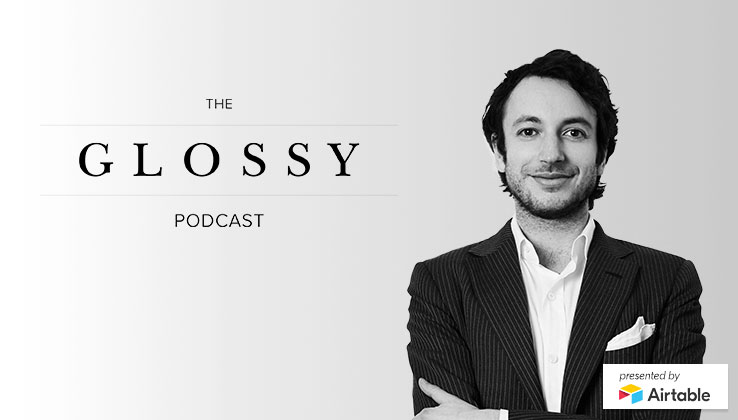Subscribe: iTunes | Stitcher | Google Play | Anchor
Adam Pritzker, of the Hyatt Hotels family, built Assembled Brands off of the idea that fashion could benefit from the same open-source approach to resources, data and education as the technology industry.
Prior to Assembled Brands, he co-founded General Assembly — which offers professional development classes to adults and just sold to Adecco for $413 million — but soon went after a different opportunity in fashion.
“Retail, in Silicon Valley, is a four-letter word. Nobody wants to deal with it. But the tech sector, as I saw it, was already very well served with all kinds of resources — with capital, with education, with tools,” said Pritzker. “The consumer goods industry — which included CPG, beauty and apparel — was not.”
Assembled Brands, now six years in, is a holding company for brands including The Line, Khaite, Pop and Suki, with the goal of supporting inventory planning, financial modeling, distribution and infrastructure organization for a new retail industry. Pritzker joined the Glossy Podcast to discuss how brands need to adjust to keep up with today’s customers, why there’s power in numbers and what type of technology will actually change retail.
On the broken cycle
While the customer has changed, the way retail works on the brand level hasn’t kept up. As direct-to-consumer brands hit growth walls and max out the amount of funding they can reasonably raise, and wholesale retailers struggle to maintain growth and foot traffic, smaller brands are left squandering. Rethinking the relationship new brands have with retailers and giving them a sturdier platform on which to get their start is at the core of what Assembled Brands does.
Ad position: web_incontent_pos1
“As a brand, you always start with the consumer, and the consumer has changed. They want niche brands, and they discover them through social media. Because of that, the way you build a brand has changed a lot — but it’s not like retail is gone,” said Pritzker. “But retailers used to buy goods through wholesale, give brands a guarantee, the brands would make the goods and the retailer would see them. It was a virtuous cycle that’s now been completely broken. Now, banks won’t fund small brands, and people are realizing that venture capitalists aren’t the right investors for this category.”
On power in numbers
A concept like open-source fashion was formerly unthinkable; fashion brands didn’t work together for competitive reasons. But the sheer force of the industry’s change has pushed brands together in the form of coalitions and collaborations. Pritzker believes that if any new brand wants to survive, they’ll see that being part of an overarching collective of like-minded brands (some have called Assembled Brands the future American luxury conglomerate) is only going to pay off in the long run.
“Building an alliance is important to us. Open is the key word. Being open is much more powerful than being closed,” said Pritzker. “People realize they can build tools together, and scale together, in these centralized networks, and that has a powerful effect in the industry. There are new ways to go about building brands, and it’s about openness, a network, sharing tools, lowering your costs and increasing your distribution through your alliances.”
On going back to basics
According to Pritzker, retail infrastructure “blew up” over the past 10 years, and brands have struggled to efficiently find the new ways to best navigate the industry. Brands operating within Assembled Brands have access to resources like e-commerce design, inventory planning and infrastructure management. What isn’t emphasized is forward-facing technology, like automation or AR.
“I wouldn’t go right to technology when it comes to what will change retail — unless you consider financial modeling a type of technology. Having your unit economics work from Day 1 is very important, and you would be surprised — there are people who have negative gross margins, and that literally doesn’t work,” he said. “What it comes down to is: If you can expand your margins without marking down and can grow sustainably, you can build a great business that way. Then it’s about figuring out how to stitch together all the pieces of the puzzle to make sure they have a seamless customer experience, and that’s where our support comes in.”




